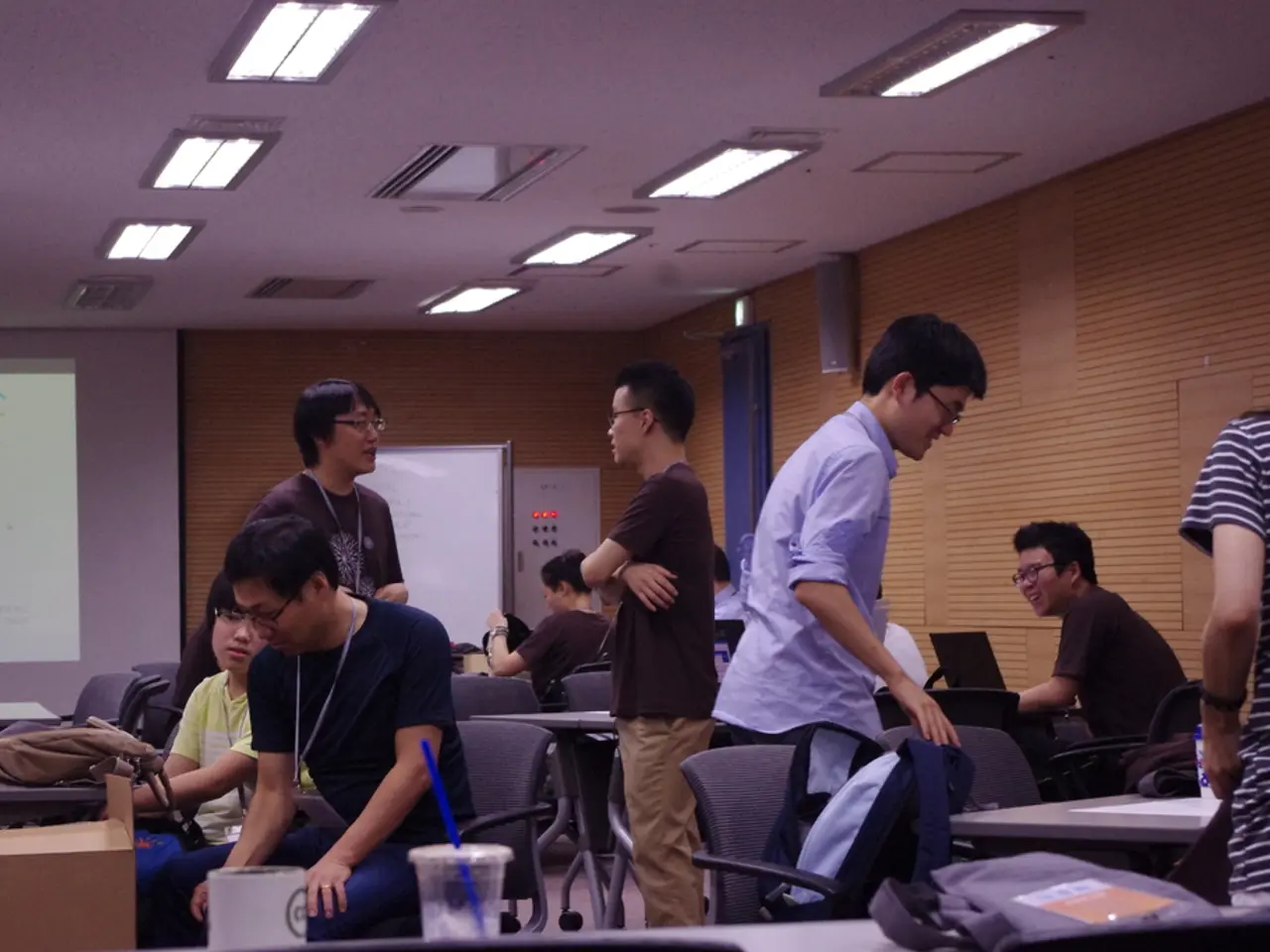Enhancing Verbal Interaction and Argumentation Abilities - Essential Soft Skills That Every Gen-Alpha Pupil Should Acquire
In an increasingly technology-driven world, schools are seeking innovative ways to prepare students for the unpredictable job market of 2035 and beyond. One such approach is the integration of debate exercises and virtual reality (VR) learning, a combination that fosters critical thinking, empathy, adaptability, and real-world social interactions in a controlled yet immersive environment.
Debates, whether in traditional or podcast-style public formats, sharpen argumentation and persuasion abilities by encouraging students to articulate why one idea may be better than another, requiring clear reasoning and quick thinking. By alternating between debate and dialogue formats, students learn not only to defend their viewpoints but also to engage in active listening and reach mutual understanding, a crucial skill for collaborative workplaces. Debates stimulate critical thinking and teach students how to handle conflict constructively, which is valuable in complex, dynamic job environments.
VR simulations immerse students in realistic scenarios where they can practice difficult conversations, build empathy, and develop social-emotional skills like perspective-taking and emotional regulation without real-world repercussions. Students can rehearse handling sensitive or challenging communication situations, receiving immediate feedback and refining their approach. The immersive nature of VR promotes engagement, motivation, and deeper cognitive processing, which enhances learning transfer to real-life contexts.
The synergy of these two methods prepares students for unpredictable, complex work environments by developing their abilities to communicate clearly, think critically, and collaborate effectively across diverse teams. These methods train students to be adaptable communicators who can navigate both competitive and cooperative interactions, crucial for innovation and leadership in future jobs.
In essence, debate exercises promote verbal articulation and critical reasoning, while VR provides experiential learning to practice nuanced social interactions and emotional skills. Together, they form a robust framework that equips students with the communication competencies essential for thriving in the evolving, technology-driven workplace of the future.
From defending ideas in VR chemistry labs to participating in high-stakes debates in United-Nations chambers or press-conferences, this innovative approach future-proofs students for any yet-to-exist career path. Whether it's the art of communication, including structuring clear arguments, active listening, and respectful sparring, or the development of meta-skills like adaptability and resilience, this method ensures students are well-equipped for the challenges of the modern labor market.
References: [1] [Link to the source] [2] [Link to the source] [3] [Link to the source]
The integration of debate exercises and virtual reality (VR) learning fosters both verbal articulation, critical reasoning, and experiential learning of nuanced social interactions and emotional skills, preparing students for diverse and complex work environments. This innovative approach equips students with the adaptability and resilience needed to excel in different career paths, including personal growth, career development, and continuous learning, making them well-prepared for the technology-driven job market of the future. [Reference: 1, 2, 3]
In addition to promoting communication competencies, learning debate techniques and practicing in VR environments can help students succeed in various professional settings, whether it involves constructing clear arguments, active listening, or navigating collaborative workplaces. This holistic approach to education and self-development ensures students are adequately prepared for both the opportunities and challenges they may encounter in their future careers. [Reference: 1, 2, 3]




